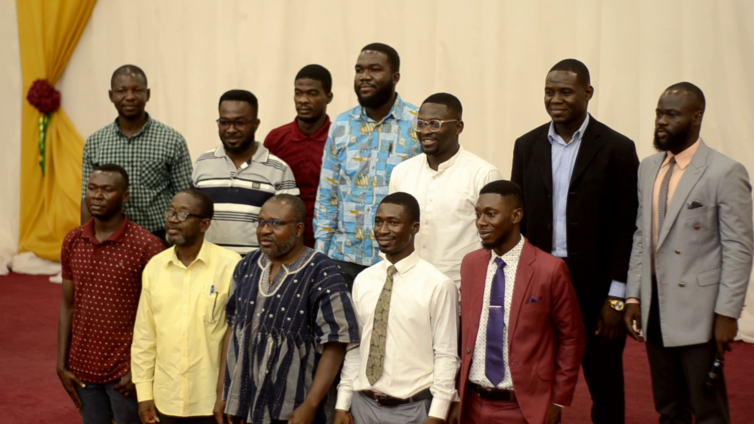There are doubts about Ghana’s ability to attain its 10% renewable energy target in the national energy supply mix by the end of 2030.
Ghana’s Renewable Energy Master Plan anticipates offsetting carbon emissions through the adoption of cleaner energy sources like solar and biofuels.
But some clean energy advocates want expedited actions and investments for sustainable economic growth, improved social life and reduced effects of climate change.
In recent times, Ghana has been plunged into unplanned power outages, impacting negatively on households and businesses.
The erratic supply of power has necessitated calls for increased investment in alternative energy sources like renewable energy as the country’s sole dependence on hydro-electric power and fossil fuel are insufficient and detrimental.
President of the Ashanti chapter of the Certified Electricians, Ing Amponsah Ababio stressed the harnessing of solar energy to complement the energy mix.

He believes not only would it help resolve power shortages but also help decarbonize the atmosphere.
“We are thinking that the primary source of energy God gave us is oil but we are getting to see that it is in the sun. It’s for us to harness it appropriately to use it. If we can go to the sun and depend on it solely, it can help us. There’s no way it will get finished,” he stressed.
He spoke during a workshop on Energy Citizenship at the Akenten Appiah Menkah University of Skills Training and Entrepreneurial Development.
The programme is part of the University’s effort to create awareness on the importance of climate change and transitioning to low-carbon energy sources through inclusive energy citizenship.
With the country transitioning its energy supply to include cleaner sources, it has become imperative to initiate conversations on conserving energy.
A study conducted at Pungu, a farming community in the Upper East region with strategic location of a VRA solar plant, revealed residents were unaware of the essence of the national energy transition plan.
Lead researcher, Abdul Latif says the low awareness creation about energy in host community is not appropriate.
He wants the government to engage indigenous people to safeguard the environment and also conserve energy.
“I realized the awareness was very low. When such happens about any energy project, people will not care to engage in anything of the sort,” he said.
Senior Lecturer at the Electrical and Electronics Department of the University, Ing Dr. Albert Awopone, says the country is not pushing in enough to curb power losses.
“50% of our consumption goes to domestic consumers. Studies show that we can reduce between 20 to 60% of our energy losses by simply employing energy efficient and energy conservation practices. These techniques do not involve any investments,” he advised.
Energy Citizens for Inclusive Decarbonization (ENCLUDE) project is led by the Technical University of Netherlands (TU DELFT), The University of Energy and Natural Resources, Sunyani (UENR), and The Akenten Appiah-Menka University of Skills Training and Entrepreneurial Development (AAMUSTED).
Latest Stories
-
Paris 2024: Opening ceremony showcases grandiose celebration of French culture and diversity
3 hours -
How decline of Indian vultures led to 500,000 human deaths
4 hours -
Paris 2024: Ghana rocks ‘fabulous fugu’ at olympics opening ceremony
4 hours -
Trust Hospital faces financial strain with rising debt levels – Auditor-General’s report
5 hours -
Electrochem lease: Allocate portions of land to Songor people – Resident demand
5 hours -
82 widows receive financial aid from Chayil Foundation
5 hours -
The silent struggles: Female journalists grapple with Ghana’s high cost of living
5 hours -
BoG yet to make any payment to Service Ghana Auto Group
5 hours -
‘Crushed Young’: The Multimedia Group, JL Properties surprise accident victim’s family with fully-furnished apartment
6 hours -
Asante Kotoko needs structure that would outlive any administration – Opoku Nti
6 hours -
JoyNews exposé on Customs officials demanding bribes airs on July 29
7 hours -
JoyNews Impact Maker Awardee ships first consignment of honey from Kwahu Afram Plains
8 hours -
Joint committee under fire over report on salt mining lease granted Electrochem
8 hours -
Life Lounge with Edem Knight-Tay: Don’t be beaten the third time
8 hours -
Pro-NPP group launched to help ‘Break the 8’
8 hours

